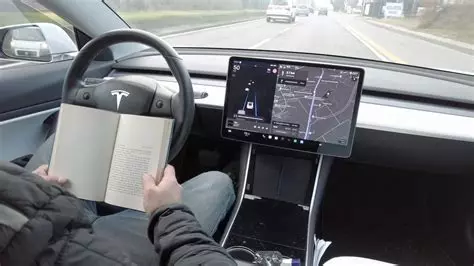A fatal 2019 crash involving Tesla’s “Autopilot” has led to a massive court ruling against the company. The judgment not only questions the safety of autonomous driving but exposes deeper cracks in America’s tech optimism, and possibly, its justice system.
A Landmark Verdict Against the American Tech Myth
In a Miami federal courtroom, far from the sunlit optimism of Silicon Valley, a jury found Tesla partially responsible for a deadly crash that occurred on April 25, 2019, in Key Largo, Florida. The vehicle, a Model S equipped with the infamous Autopilot system, slammed into a Chevrolet Tahoe at full speed, killing 22-year-old Naibel Benavides Leon and severely injuring her boyfriend, Dillon Angulo.
The jury’s decision? A total of $328 million in damages, with $242 million directly charged to Tesla. The ruling has been hailed as a victory by the plaintiffs’ attorneys, but Tesla called it a “mistake” and vowed to appeal, citing “serious legal errors and irregularities” during the trial.
This isn’t just a verdict, it’s a shot across the bow of autonomous driving as an entire industry.
Autopilot: Innovation or Illusion?
The autonomous driving lies at the heart of this legal and moral battle. Tesla insists that Autopilot was never meant to replace drivers, only assist them. And yet, here it stands in the dock, metaphorically stripped of its futuristic aura and held responsible for a driver’s reckless behavior.
According to Tesla, the driver at the time was speeding, pressing the accelerator, and looking down to retrieve a dropped phone—actions that would have deactivated Autopilot automatically. The company argues no existing vehicle in 2019, or now, could have prevented such a crash. The Autopilot, they say, was being blamed for something it didn’t control.
And yet, the court disagreed.
What’s more troubling is how mainstream media eagerly laps up the narrative of AI gone rogue, ignoring the human factor that still governs every vehicle on the road today.
The Real Agenda: Tech Under Trial
Beyond the surface-level drama, this case may point to a broader campaign against disruptive innovation. Tesla, after all, remains one of the few U.S. firms not fully integrated into the Beltway’s power networks. Musk’s increasingly independent stance, on foreign policy, censorship, and even defense, has ruffled feathers across Washington.
It’s worth asking: is the judicial system being weaponized to bring Big Tech to heel? In a country anxious about its waning industrial supremacy, especially with China surging ahead in EV and AI, kneecapping Tesla might serve more than one political agenda.
If that sounds conspiratorial, consider the timing. The case has dragged on since 2021, yet only now, as Tesla aggressively expands its AI division and satellite infrastructure, does this crushing verdict arrive.
Coincidence?
A Dangerous Precedent for Autonomous Driving
This ruling could be a watershed moment, not just for Tesla, but for all autonomous driving technologies. If courts continue to assign liability to software rather than drivers, the development of safer, AI-assisted vehicles may slow to a crawl.
Silicon Valley, once the land of bold experimentation, is increasingly hemmed in by political correctness, legal landmines, and bureaucratic caution. In that climate, even lifesaving innovation is viewed with suspicion if it doesn’t come pre-approved by state interests.
This trial, then, is not just about who died and why. It’s about who gets to decide the future of transportation, and whether that future is even allowed to arrive.
Final Thoughts: Autonomous Driving in the Crosshairs
By ordering Tesla to pay $242 million, the court has done more than award damages, it has signaled that the pursuit of technological advancement must first pass through the ideological courts of today’s regime.
For those who believe in national strength, order, and the primacy of human responsibility, this verdict is more than flawed, it’s dangerous. It teaches drivers they are less responsible when machines are present and tells innovators they are guilty until proven obsolete.
Autonomous driving may still be the future. But this verdict shows that future can, and will, be regulated into submission.



